- Administrator
- Albums and Singles
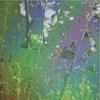 It is easy (and not unreasonable) to critique Mark McGuire's voluminous solo output as excessive and somewhat redundant–no one needs every single album he releases.  However, it is worth noting that he has maintained a remarkably high (and still seemingly increasing) level of quality for an artist with over three dozens releases to his name and his "major" releases (like this one) tend to be especially good.  Get Lost explores a lot of ground that McGuire has already covered many times before, but he is still covering it beautifully and even exhibits some welcome signs of evolution.
It is easy (and not unreasonable) to critique Mark McGuire's voluminous solo output as excessive and somewhat redundant–no one needs every single album he releases.  However, it is worth noting that he has maintained a remarkably high (and still seemingly increasing) level of quality for an artist with over three dozens releases to his name and his "major" releases (like this one) tend to be especially good.  Get Lost explores a lot of ground that McGuire has already covered many times before, but he is still covering it beautifully and even exhibits some welcome signs of evolution.
It recently occurred to me that the single most impressive thing about Mark McGuire's music is how gloriously and improbably anachronistic it is.  While he has certainly carved out a very unique style that sets him far apart from every other guitarist in the underground milieu, his larger accomplishment is the fact that he sounds like he is recording in a fictitious, sun-dappled Van Halen-imagined '80s while still seeming informed of all post-grunge developments in music.  For example, several songs here ("Get Lost," in particular) evoke vague and idyllic concepts like "childhood" and "California."  Also noteworthy is the fact that Mark has no reservations about sounding upbeat and anthemic (not at all the norm in current psych/experimental circles) and championing unhip metal/prog tropes like harmonized guitar solos without the slightest trace of winking irony.  Given that he is from the Midwest and is too young to remember the '80s, his guileless channeling of innocence, blue skies, and beaches is both unsettling (in a "Faustian pact" way) and hugely refreshing.
Mark evokes some other moods on Get Lost too though.  The most unexpected curveball is his addition of somnambulant, chant-like vocals to the bitter-sweetly jangling "Alma" and its electronically gurgling reprise.  It isn't nearly as major a development as it could have been, as it is more of a textural move than a songwriting sea change, but it is odd to hear a human voice on a Mark McGuire record (especially a seemingly world-weary one).
McGuire also gives electronics an increased role, most conspicuously on the album's epic 20-minute centerpiece, "Firefly Constellations," which is largely built upon a bed of burbling and queasily glistening analog synth (or something that sounds a hell of a lot like it).  In fact, "Firefly" differs dramatically from the rest of the album in an arguably bad way:  most of it sounds far more like a forgettable Kosmiche artifact from the '70s than something distinctly McGuire-esque.  Also, it seems a bit annoying, static, and overlong...until it morphs into a rather sublime outro around the 13-minute mark.  I am still on the fence about whether the pay-off needs or justifies such a sluggish build-up, but it is impressive enough to elevate the song from "bad idea" to "somewhat successful experiment that may continue to grow on me."
Successful or otherwise, it is definitely heartening to hear McGuire publicly wrestling with new ways to expend his aesthetic, as those quirks and detours make Get Lost stand out a bit from the rest of his vast oeuvre and bode well for his continued relevance.  At this point, it is pretty much a foregone conclusion that a new McGuire album will be quite good (as this one is), but a bit more unpredictability sweetens the deal immeasurably.
Samples:
 
Read More
- Administrator
- Albums and Singles
 When Michael Gira closed the door on Swans over ten years ago, the title of this album spelled out clearly that he was done with the concept. Swans have always taken perversity in their stride and the perversity of a (then) final, live album being their masterpiece fits comfortably within my view of their work. It is easy to scoff now and talk about the financial benefits of reunions but it is obvious from every note on this double live album that the sheer energy required to fuel the fires of a group like this could not last forever. Changes of life pushed him away from Swans and now a similar situation has caused him to abandon The Angels of Light in order to pick up the flame that burned at its brightest here.
When Michael Gira closed the door on Swans over ten years ago, the title of this album spelled out clearly that he was done with the concept. Swans have always taken perversity in their stride and the perversity of a (then) final, live album being their masterpiece fits comfortably within my view of their work. It is easy to scoff now and talk about the financial benefits of reunions but it is obvious from every note on this double live album that the sheer energy required to fuel the fires of a group like this could not last forever. Changes of life pushed him away from Swans and now a similar situation has caused him to abandon The Angels of Light in order to pick up the flame that burned at its brightest here.
Clanging bass chords ring out with the clear precision of the first tentative drops of a tropical storm on a placid sea. As "Feel Happiness" gains momentum, the drops become a torrent and the piece goes from crescendo to crescendo; the climax becoming a plateau of ecstatic sound. When it becomes almost too much, it breaks into a pleasant refrain and Gira’s voice breaks through the music: "I’m truly sorry for what I never did/But I forgive you too for your indifference." This was my gateway into Swans almost a decade ago and it shocked me with its graceful balance of lyricism and power. Even now, having amassed the rest of the Swans back catalogue, I would be hard pressed to pick an album ahead of Swans Are Dead (only Public Castration is a Good Idea comes close with the best of their studio albums coming in a pack afterwards).
The rest of the first disc covers the majority of a typical Swans setlist in 1997; new material like the aforementioned "Feel Happiness" rubbing shoulders with "greatest hits" like "I Am the Sun" and "I Crawled." However, Gira was unwilling to recreate the older songs as they were originally performed; the group radically revamped these pieces into entirely new musical statements. Jarboe replaces Gira on vocal duties on "I Crawled," turn the submissive lyrics on their head as she imbues the words with a strong, feminine conviction before unleashing the most startling vocals I have ever heard from a woman with the possible but not absolute exception of Diamanda Gal√°s.
The disc and indeed the original lifespan of Swans finished with a tremendous version of "Blood Promise" from The Great Annihilator. A looped recording of what sounds like The Yale Whiffenpoofs is the entrance way into this massively extended version of the song: "We are all little lambs who have lost our way – baa, baa, baa." The almost Disney-like arrangement weighed down with a religious conviction which matches the group’s own music remarkably well. Like this old song, Swans were wrapping their deep, bleak message in pretty music. "Blood Promise" is a perfect example of this as Gira’s words have a weight that is lifted easily by the poised melodies and rhythms. The group lock into a repetitive but shifting structure, building into a series of crescendos which I want to last forever (and I’m not alone, you can hear an audience member shout "Don’t stop!" near the end).
The second disc (documenting a show from 1995) follows a similarly styled set list as the first but with a heavier emphasis on Soundtracks for the Blind material. Again, older Swans songs are reworked into new forms but it is the material from Soundtracks for the Blind which impresses most here. It would be impossible to recreate an album like that in a live setting, yet I would argue that the selections made from that album work better here than in the studio. "The Sound" has a depth here which it never reaches on Soundtracks for the Blind and all of the musicians sound like they are playing for their lives; in particular Larry Mullins’ skilled mix of drumming and vibraphone is stark and achingly beautiful. After the song’s climax, Gira’s roar cuts through the music to paralyze us.
Like "I Crawled" on the first disc, "Your Property" is given a face lift on the second disc. Again, Jarboe takes control of the microphone and shifts the focus of the song away from the brute masculinity of the original. However, it does not work quite as well as "I Crawled" but is a worthy inclusion nonetheless. Jarboe and indeed the entire band come across much stronger on "Yum Yab;" the martial drum beat and reeling guitars bringing out an aggression in Jarboe which gives the song an intensity that was lacking in "Your Property."
As I stated recently, for me Swans have always been about the live albums from the roughly recorded to the higher fidelity concert recordings. Swans were (and hopefully will be) a band who worked best as a live unit. Along with Neil Young and Crazy Horse’s epic Weld and Fushitsusha’s various live documents, Swans Are Dead casts a large, imposing shadow on pretty much all other music I have heard. These are albums I go to more than any others and for me Swans Are Dead dwarfs what would otherwise be an impeccable recording career.
samples:
 
Read More
- Administrator
- Albums and Singles
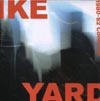 As labels large and small continue to mine the dormant backcatalogs of forgotten post punk artists, hoping to cash in on the continuing dance punk fad, it hardly fazes me that Ike Yard, a group name-checked in Simon Reynolds' latest book, would get this type of revisionist treatment.
As labels large and small continue to mine the dormant backcatalogs of forgotten post punk artists, hoping to cash in on the continuing dance punk fad, it hardly fazes me that Ike Yard, a group name-checked in Simon Reynolds' latest book, would get this type of revisionist treatment.samples:
Read More
- Administrator
- Albums and Singles
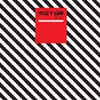 The Nitzer Ebb-inspired debut from this techno duo demonstrates once again that a collection of singles, actual and potential, does not an album make. Electronic musicians continue to fall into this predictable trap.
The Nitzer Ebb-inspired debut from this techno duo demonstrates once again that a collection of singles, actual and potential, does not an album make. Electronic musicians continue to fall into this predictable trap.samples:
Read More
- Lucas Schleicher
- Albums and Singles
Alien8
Live in Montreal is all about BDSM and designed specifically for a psychological experience in that way. All of this single 38 minute piece works within the bounds of depravation and excess, withdrawing the capacity of sense from the psyche of listener at times and then flooding it with sensation at other times. The blindfold, apparently used by audience members at the show, furthers this perspective: remove all primary perception from the individual and subject them, then, to the experience of helplessness. Perhaps taking an explicitly sexual perspective on this disc is going beyond the information and intent López set out with, but I don't think it is entirely inappropriate.
The music is, as usual, manipulated field recordings. The soft and airy hum of some environment is interrupted with spasms of white noise, dull explosions, and then abrupt silences or near-silences. It's as though López is pulling the proverbial chair out from under me when this happens. This occurrence repeats itself in such a way that I assumed I'd be able to predict it every time, but because nothing López does has any rhythmic device, it is impossible to know when these radical changes are going to occur.
Listening to Live in Montreal is a lot of fun and I get the feeling that, were I to play it for friends in the right situation, they would be genuinely shocked or would at least take notice of López's approach. The silences, at some point, do seem rather painful, if only in a limited way. After having so much sound tossed at me, I was anxious for it to return and actually got frustrated when López took his time making it happen. Listening to this in a dark venue of some kind might provide more kitsch than visceral experience, but listening to it at home with the lights out my eyes closed has generated some amount of anxiety.
Drone would be a hell of a lot more popular if more artists took it to some sexual level. Maybe López didn't intend for this to be the case with Live in Montreal, but I'm not against reading a little bit of visceral fun into this album, especially when its machinations are visceral by nature.
Read More
- Lucas Schleicher
- Albums and Singles
CIP
KK.Null and z'ev is a nice pairing on paper, both of them have been around a long time and have produced a high quality body of work that encompasses multiple genres, styles, and perspectives. Listening to the record they made together does not convey such a history. While aesthetically the rather quiet and more subtle moments, like on "Untitled 2," are pleasing and perhaps even hypnotic, Artifical Life on the whole sounds like the product of two very different minds working in two very different ways. Had those two approaches synthesized well this would have turned out to be a better record, but there's a severe lack of conceptual intent keeping all the pieces of the puzzle from melding into a satisfactory whole.
There are all manner of bells, metallic plates, synthetic chirping, and noise to be found throughout this album's five songs, some of them genuinely exciting because of the tension they create, but the lack of consistency between songs is frustrating. The aforementioned "Untitled 2" is atmospheric, darkly lit and crawling with all sorts of unseen monstrosities and nervous twitching, but the 19 minutes of music on either side of it don't even come close to approximating the effect it has on me. Much of this has to do with the simplicity this song exhibits. It isn't entirely acoustic on z'ev's end (some of the drums were manipulated in the arrangement, I assume), but it is as close as the album gets to pure percussion and thus as close as the album gets to direct power and elegance. "Untitled 3" sounds like it could be techno if the right producer had gotten ahold of it and "Untitled 4" is just too dull to sit through despite its comparatively short running time.
"Untitled 5" does everything "Untitled 2" did right and features more of z'ev's metallic percussion. Portions of this fifth and final piece are almost melodic and, when played next to "Untitled 2," sound progressive: it takes up an almost narrative quality. Get rid of the other three pieces on Artificial Life and it would've made a fine short-player. As it stands there's too much garbage cluttering this release up.
Read More
- Administrator
- Albums and Singles
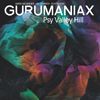 Guru Guru were one of the finest groups of their era, the closest any of the krautrock groups to the progressive rock of Gong or The Soft Machine but still they stood apart. They contained enough rock and blues to make them accessible but pushed these forms into new shapes thanks to their impressive improvisations. Containing both Mani Neumeier and Ax Genrich, Gurumaniax are an almost complete reunification of the classic line-up of Guru Guru. The name change is in part due to the passing of bassist Uli Trepte whose large shoes are now filled by Guy Segers. This album is the result of one week’s work in the studio and sounds as vibrant and stunning as Guru Guru ever were.
Guru Guru were one of the finest groups of their era, the closest any of the krautrock groups to the progressive rock of Gong or The Soft Machine but still they stood apart. They contained enough rock and blues to make them accessible but pushed these forms into new shapes thanks to their impressive improvisations. Containing both Mani Neumeier and Ax Genrich, Gurumaniax are an almost complete reunification of the classic line-up of Guru Guru. The name change is in part due to the passing of bassist Uli Trepte whose large shoes are now filled by Guy Segers. This album is the result of one week’s work in the studio and sounds as vibrant and stunning as Guru Guru ever were.
There are few classic bands which can claim to be as vital today as they were in their heyday. Faust have done well for themselves in not only being as good as they ever were but have divided into two equally exciting Fausts. On the other hand, Kraftwerk have become the Tony Bennett of krautrock who do a great live show of hits but show little to no capacity for any new creativity. Gurumaniax sit nearer to Faust than to Kraftwerk in this regard. Their intentions are in the right place and several times they come very close in generating the same uninhibited excitement that Guru Guru did all those years ago.
Much of Psy Valley Hill follows the same path as seminal Guru Guru albums like UFO and Kang Guru; the DNA of rock’n roll being spliced, rearranged and reassembled into something that still retains the vigour of the music but works in previously inconceivable way. "Spaceship Memory" drags the seminal Guru Guru piece "Space Ship" through a time warp, the unmistakable guitar riff re-tailored and set bursting through the cosmos before arriving at the same sprawling expanse of a distant galaxy as the original. This time, the instrumentation sounds earthlier as if these are celestial explorers returned to ground and trying to recreate the psychedelic experiences of unknown geometries and new colours for the benefit of those left behind.
"Voodoo Touch" begins sounding like a pub band doing something Krautrock-influenced but the impeccable drumming of Neumeier brings the piece around to stranger territories. As the piece progresses, the other instruments start vibrating away from anything resembling pub rock. It sounds like it is straightforward blues-influenced rock but the layering of instruments and drifting of structures open the music up into a wider, genre-free existance. The same sensations of an almost nostalgic rock style being co-opted into something newer and stranger run through the album’s climax "For Uli T." (dedicated of course to Trepte). While the piece never progresses in a way I expect it to, its slinking bass line provides a audible monument to Trepte’s own style.
Overall, this is a fun album but not a true return to the brilliance that Guru Guru were capable of in their heyday. However, for a group of musicians who must be eligible for their bus passes Psy Valley Hill is a monster. Neumeier certainly sounds like a man less than half his age (in fact, he sounds tighter in places than he did with Guru Guru!). Plus the fact that Gurumaniax seem to be truly into what they are doing unlike any of the cash cow reunion bands that are clogging the release schedules and music festivals over this last decade counts for a lot.
samples:
 
Read More
- Administrator
- Albums and Singles
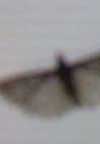 Across the five pieces on this album, Ernst Karel and Annette Krebs explore an expansive but tiny sound world; the crackles and rough noises are akin to macro photos of the components of unknown objects. The whole item is out of frame but the viewer (or in this case, listener) is given a generous amount of detail of a small part. Here the sources of the sounds are deliberately kept obfuscated but it forces the listener to pay attention to the minutiae of these noises. The result is an engaging and exhausting album which challenges and drains in equal measure.
Across the five pieces on this album, Ernst Karel and Annette Krebs explore an expansive but tiny sound world; the crackles and rough noises are akin to macro photos of the components of unknown objects. The whole item is out of frame but the viewer (or in this case, listener) is given a generous amount of detail of a small part. Here the sources of the sounds are deliberately kept obfuscated but it forces the listener to pay attention to the minutiae of these noises. The result is an engaging and exhausting album which challenges and drains in equal measure.
While the music is generally formless, it is not lacking in direction. As Karel generates swells of electronic sound, Krebs populates these empty landscapes with tiny denizens and features. Her guitar playing is mostly camouflaged, what I assume is Karel’s work could be hers or equally what is listed as "objects" and "tape" in the liner notes I could be misidentifying as being something else entirely. The textures in "Falter 3" could easily be stones being rubbed together, apples being crushed or electronically synthesized. The ambiguity of the sounds gives the pieces on Falter 1-5 their attraction; there is nothing like a good mystery.
While it is easy to make comparisons with artists like Jacob Kirkegaard and even Philip Jeck, Karel and Krebs take a less conceptual approach to their music. The music falls closer to free improvisation than to the careful electronic works that would be at home on Touch. As such, Falter 1-5 does not lend itself to background listening as the contrasts and juxtapositions of the various sounds manifests only with careful attention. The silent pauses that appear throughout the album bring to mind the anti-rhythms of Keiji Haino; a sudden void which gives the listener a moment to take in what they have just heard.
"Falter 5" introduces a wider range of materials, human voices appear through a haze of tape hiss and the duo take on a tighter, almost musical approach to playing. It is the densest of the five pieces and stands out because of its sonic concentration. As it peters out and leaves a final blank slate hanging in the air, it is hard to enter into the music again or even to replace Karel and Krebs with something less intense. Falter 1-5 is one of those albums which is a gentle ripple on the surface but deep with hidden power, dragging me under and leaving me in no fit state to function afterward.
samples:
 
Read More
- Administrator
- Albums and Singles
 I first heard Swans in 1997 when I bought Soundtracks for the Blind in a downtown Portland record store. I picked the album on the strength of the title, but mostly because it was erroneously filed in the "Gothic" section. Immediately after buying it, I went with my father on a trip to Central Oregon. I vividly remember looking out at the blasted volcanic desert along Highway 97 to the accompaniment of the noxious, churning guitar noise of "The Sound". At the time, I had no idea that Swans were braking up or that they had been playing music for as long I had been alive.
I first heard Swans in 1997 when I bought Soundtracks for the Blind in a downtown Portland record store. I picked the album on the strength of the title, but mostly because it was erroneously filed in the "Gothic" section. Immediately after buying it, I went with my father on a trip to Central Oregon. I vividly remember looking out at the blasted volcanic desert along Highway 97 to the accompaniment of the noxious, churning guitar noise of "The Sound". At the time, I had no idea that Swans were braking up or that they had been playing music for as long I had been alive.
Listening to the album now, it’s somewhat difficult to imagine that Michael Gira thought the band was finished creatively. At more than two hours long, Soundtracks contains more worthwhile material than many musicians complete during their entire career. The album’s long format mirrors the demanding nature of the band.From their inception, Swans always worked on a large scale. Everything from extreme performance volumes to themes of birth, death, and annihilation reflected a driving need to make grandiose statements, so it follows that Swans wouldn’t skimp on their (would be) final effort.
For its monumental running time and weighty lyrics, Soundtracks goes by with surprising ease, due to the incredible diversity of sounds song structures. The album is a kind of giant collage of found sounds, home-recordings, live takes, and studio tracks. Often a single song will incorporate two or more of those elements, a departure from the regimented performances and pristine fidelity on previous records.
The spoken interludes between proper songs are among the most evocative moments of the album. Gira included a conversation from his father talking about his advancing blindness, while Jarboe supplied surveillance tapes made by her father, an ex-FBI agent. Some of these recordings have a quality altogether absent from previous records: levity. In "I Was a Prisoner of Your Skull," a voice rambles in a drunken southern drawl, "You was going to cook you some breakfast…Everything was fine, but you had to call me in there and show you how to use a fork." Out of context, that kind of monologue would sound downright stupid, but the accompaniment of loopy whistling and airy keyboard turns the banality into a kind of comic disease.
Another variation is the de-emphasis of Gira and Jarboe’s voices. Often, they are sublimated in audio-effects or cut up into loops. Listening to album for the first time, I got the impression that Swans were primarily an instrumental band, which was foolish considering that Soundtracks includes some of the band’s most potent lyrics.The song "All Lined Up" isn’t dark and brooding, it’s genocidal. "I see their bodies in the pyre…and taste the smoke of burning hair," Gira sings blithely, his words belying the perception that the singer had mellowed with age.
The album’s expansive structure also fails to blunt the instrumental fury of the band. The epic sprawl of "The Sound" with its crashing cymbals and leaden chords reveals the band’s debt to artists like Glen Branca and others in the Downtown New York music scene of the early 1980s. The live track, "Yab-Yum Killers," features the band in an abnormally loose mood with Jarboe’s shrieks recalling No-Wave singers such as Lucy Hamilton and Lydia Lunch, another reflection of the band’s early history.
Soundtracks for the Blind is in many respects a rare record. For such a gigantic, sprawling work, the lack of filler is near miraculous. If anything, Swans were, and are, a disciplined band. Regardless of any stylistic vice they have, everything they released sounds like a supreme effort. That trait is what keeps Soundtracks from becoming half-baked or bloated. By 1997, Swans had rich and long enough history to make a vast album which could incorporate everything that made them great. In that light, Gira calling quits seems like more of a triumph than a defeat, a stubborn demand to end things on his terms. That conviction is what sustained the band’s following thereafter, especially for fans like me who never got to see them live. Now that Swans have reformed, Soundtracks for the Blind is no longer the band’s final statement. Nonetheless, it remains a crucial one.
samples:
Read More
- Administrator
- Albums and Singles
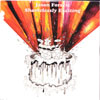 Stepping away from the Donna Summer guise, on this album, Jason Forrest uses and abuses a wide range of platters and mixes themtogether into a bubbly cauldron of bad tastes that stays fun andbouncy. Disco, new wave, arena rock and punk are all represented insmall one or two measure doses, and it's the way that Forrestseamlessly combines disperate sounds that makes the record remarkable.
Stepping away from the Donna Summer guise, on this album, Jason Forrest uses and abuses a wide range of platters and mixes themtogether into a bubbly cauldron of bad tastes that stays fun andbouncy. Disco, new wave, arena rock and punk are all represented insmall one or two measure doses, and it's the way that Forrestseamlessly combines disperate sounds that makes the record remarkable.Jason Forrest first made his name by stealing someone else's.Regardless of what people thought about his music, the story at firstwas that a white dude with an iBook would have the balls to record andtour under the name Donna Summer. The name cribbing was then just apart of the act, as Forrest's modus operandi was one of plundering allsorts of records that most people nowadays would only enjoy with somedegree of ironic detachment. His approach to the sounds hasn't changedwith Shamelessly Exciting,but he's put his own name above the title this time, and his name andthe music are what should take center stage in place of the gimmick. On "My 36 Favorite Punk Songs," the title would seem to say it all, butrather than sounding like an incomprehensible mashup of two chordanger, the track plays more like a modern day disco anthem with punkenergy played for laughs.
Forrest is able to rip and steal andrecombine sounds in a way that is unique to his own take on thefractured world of breakcore. While most of the heavy hitters go fordeath metal riffs and ear-splitting noise or over-the-top scatalogicalhumor and juvenile antics, Forrest takes all the detritus from musicthat is excessively middle-of-the-road, but doesn't steer the soul ofthe tracks he plunders off course. His tunes are still wildlyaccessible and fun—tongue in cheek for sure—but there's none of theanger or reappropriation of cultural signifiers upon which the work ofmany of his peers hinges. Shamelessly Exciting comes off morelike the ultimate party mixtape, but with songs that have been mixedtogether only in tiny increments so that everything sounds vaguelyfamiliar but new all at once. Even Forrest's broken, drilly beats aremixed at a comfortable listening level for those who aren't used tospastic rhythmic assaults.
If I had one complaint about Shamelessly Exciting,it would be that the end result of all of Forrest's tinkering soundsalmost too tame and middle of the road itself. This record will nodoubt be a bridge record that introduces new people to a whole newworld of copyright abuse and regenrefication, and that can't be a badthing.
samples:
Read More
- Administrator
- Albums and Singles
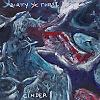 Warren Ellis, Mick Turner, and Jim White take aslightly different slant on Cinder, restricting themselves to shorter times for each piece. The distinctivesound of Dirty Three remains intact but they sound rejuvenated. This is a definite strong contender for album of the year.
Warren Ellis, Mick Turner, and Jim White take aslightly different slant on Cinder, restricting themselves to shorter times for each piece. The distinctivesound of Dirty Three remains intact but they sound rejuvenated. This is a definite strong contender for album of the year.
Tough and Go
Ellis’ violin is still the central voice of the band, singing lyricsthat no voice can sing; Turner’s guitar work is the same reservedtumbleweed picking that complements the violin so well; and as usual I amastounded at how good a drummer Jim White is: his quirky offbeats andexpressive playing takes the Dirty Three to places no ordinary drummercould reach.
Some guest musicians have been drafted to expand thegroup’s sonic palette. When “Doris” begins I thought that DirtyThree were covering U2 until the bagpipes (provided by Mark Soul)kicked in. The sound of the pipes pushes the band back into morefamiliar sounding territory. More interestingly, Chan Marshall lendsher vocals to “Great Waves,” allowing Ellis’s violin playing to sit inthe background. Her voice suits the Dirty Three’s style, as shetaps into the melancholy and romanticism that they do so well.
At first Cinder feels a little too accessible for DirtyThree. Normally I feel that I have to work a little to get into one oftheir albums and becauseof that I fear it won’t have such long lasting appeal as the likes of Ocean Songs or Whatever You Love You Are.Thankfully after repeated listens and sittings it still sounds impeccable.Sometimes I wish that some of the songs were longer but that happensall the time with Dirty Three and me. What shines most out of thisalbum is the band’s (Ellis in particular) love for Irish traditionalgroups like the Bothy Band and Planxty, Ellis has taken up the bazoukiand mandolin in recent years and obviously has been paying attention toAndy Irvine and Donal Lunny. Despite the influence, Cinderstill very much sounds like three men from Australia playing theirhearts out.
samples:
Read More


